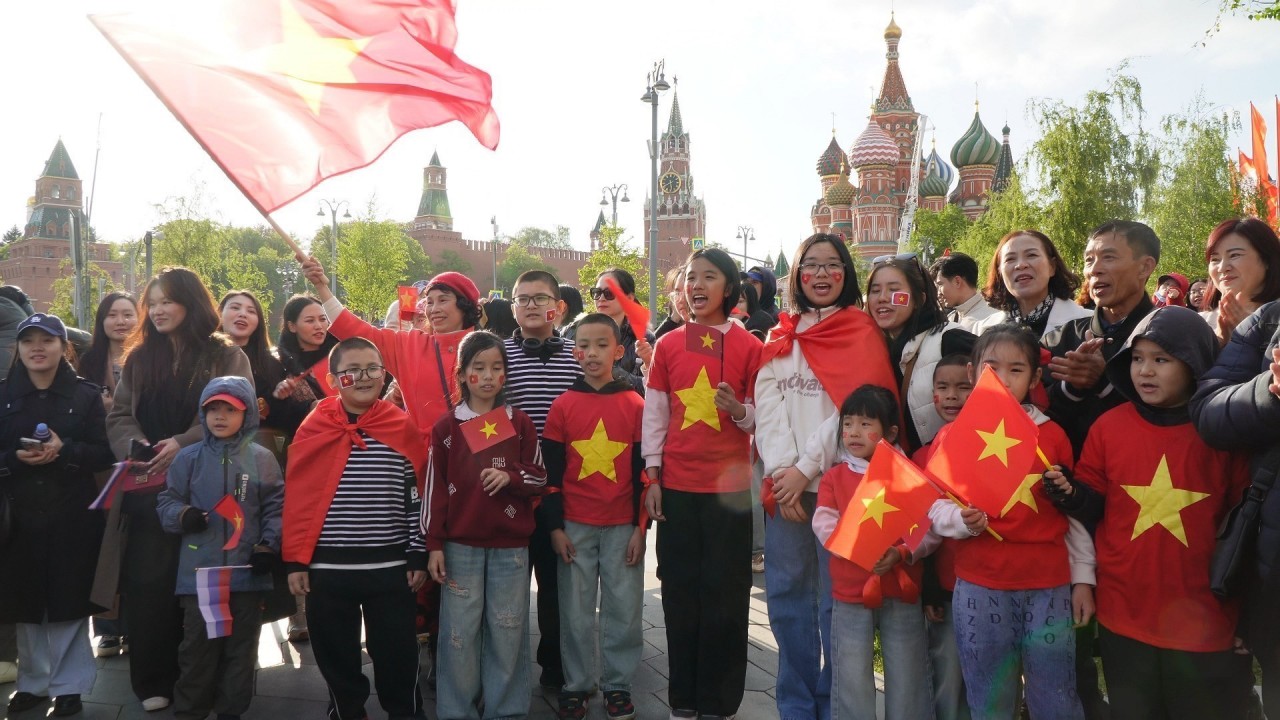Cay Tre School Preserves Vietnamese in Japan
| Lao Students Shine sin “I Love Vietnamese” Contest | |
| Language Classes Strengthen Vietnamese Identity in Sweden |
The school that teaches love for mother tongue
During a lesson, the teacher showed a red flag with a yellow star, asking all the children to say out loud, "La co!" (a flag). Their eyes were wide with attention, all focused on the sacred emblem of their country. One by one, they joyfully spelled out the word "la co" with a sense of pride.
In this class, the children are immersed not only in letters but also in the culture of their homeland. They learn to sing, dance, and listen to the humane stories of their nation. Take the young Phuong Anh, for instance; at merely 3 years old, her eyes twinkled with excitement as she eagerly sang "Di hoc" (Going to School - a familiar song for Vietnamese children). With every successfully recited Vietnamese syllable, the young girl grows more connected to her homeland.
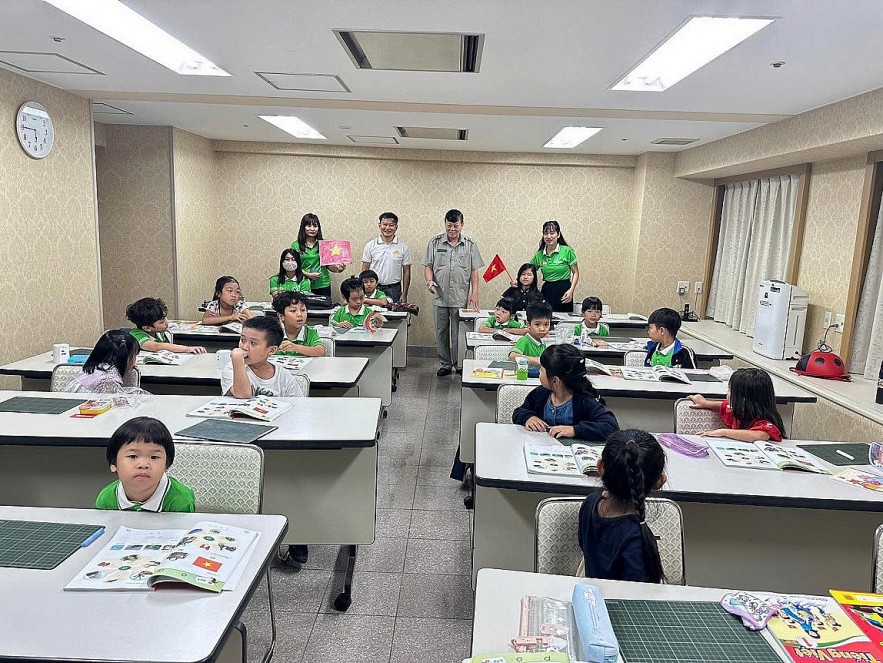 |
| A Vietnamese class at Cay Tre Vietnamese Language School. |
"Loving Vietnamese Class" is organized by Cay Tre Vietnamese Language School - the first community school in Japan - in collaboration with the Vietnamese Women's Association in the Kansai region, the Association for Liaison with Overseas Vietnamese, and the University of Languages and International Studies (Vietnam National University, Hanoi). Established in mid-August 2024, the school aims to train language skills and preserve the love for the homeland in second and third-generation Vietnamese children in Japan. It also honors the Vietnamese language as the soul of the nation, carrying traditional humanistic values, and contributing to the country's development.
Le Thuong, the school's Principal and President of the Vietnamese Association in the Kansai region, said that she and many Vietnamese people in Japan had previously organized several Vietnamese language classes for children in Japan, but not many of them attended. The Party's policy, as articulated in Conclusion 12, emphasizes "We need to diversify activities to support overseas Vietnamese in preserving the Vietnamese language, promoting cultural identity, and upholding the fine traditions of the Vietnamese people." This has led to a blossoming of Vietnamese language teaching in Osaka, exemplified by the founding of the Cay Tre Vietnamese Language School.
"We hope to build an environment where Vietnamese families in Japan not only learn Vietnamese but also exchange culture and share life experiences," said Le Thuong.
A learning space that connects the community
At Cay Tre Vietnamese Language School, Vietnamese students are taught not only Vietnamese grammar and pronunciation but also cultural values through folk songs, traditional dances, and stories about Vietnamese villages.
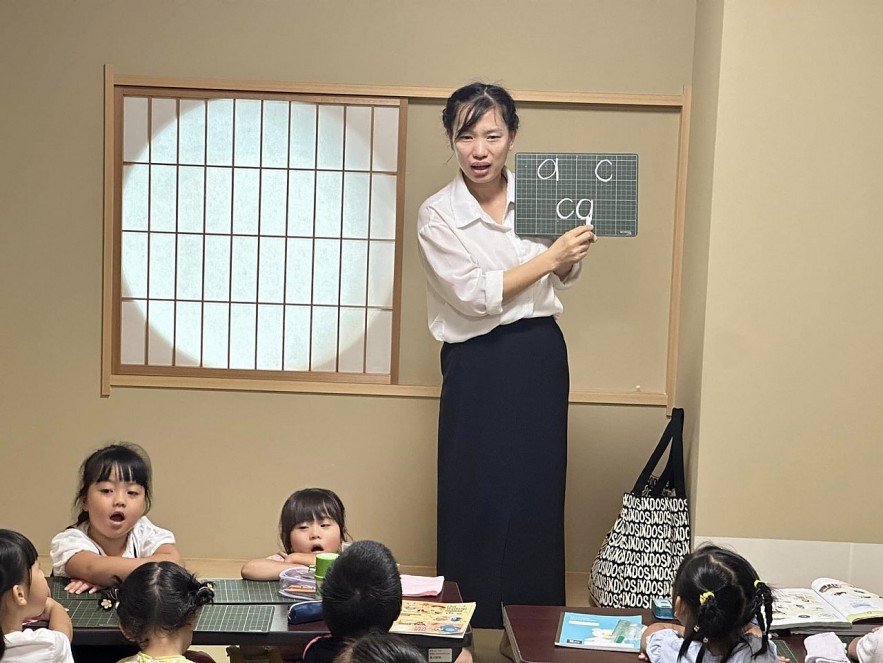 |
| Teachers of Cay Tre Vietnamese School guide students to read Vietnamese. |
With 14 volunteer teachers, classes take place in person every Saturday. These educators do more than just teach; they also serve as a link between Vietnamese children in Japan and their native culture. The school has broadened its reach by offering online classes, allowing students from various regions in Japan to engage with Vietnamese educational programs conveniently.
The uniqueness of Cay Tre Vietnamese Language School lies in the volunteerism and unity within the Vietnamese community in Japan. Rather than charging fees, the school operates on contributions from parents, teachers, and the community at large. This fosters an educational setting that is rich in language, culture, and community spirit, aiming to strengthen the bonds among Vietnamese families in Japan.
The Cay Tre Vietnamese Language School garners strong support from both Vietnam and Japan. Key contributors include the State Committee for Overseas Vietnamese Affairs, the Consulate General of Vietnam in Osaka, and academic institutions like the University of Foreign Languages and the Hanoi National University of Education, which have all played a significant role in supplying materials, expertise, and teacher training. Notably, Professor Shimizu Masaaki, Head of the Vietnamese language Department from Osaka University is one of the school's leading advisors. With many years of experience in researching and teaching Vietnamese, he has helped develop a curriculum suitable for the conditions of Vietnamese children in Japan. He also supports the training of teachers, provides learning materials, and creates a cultural bridge between the two countries.
Hoang Van Hoa (parent of Yuki), whose child attends the Vietnamese class at Cay Tre Vietnamese Language School, said Yuki was born in Japan, and not knowing his mother tongue would be a big disadvantage. Through the Vietnamese class, he hopes that his child will learn about his homeland, where his parents were born, and that he can communicate in Vietnamese.
Tran Hai Minh (parent of two children studying in the Vietnamese class) also expressed his appreciation for the volunteer teachers. "The teachers have wholeheartedly supported and taught my child. Seeing him being able to call "Mom", "Dad" and say many Vietnamese words makes us happy. Our biggest wish is that he can communicate with his grandparents when he returns to his homeland," he said.
Despite early achievements, the teaching and learning of Vietnamese in Japan encounter numerous challenges. Ngo Thi Dan, a teacher with over a decade of experience in Vietnam, identifies the primary obstacle as the absence of specialized textbooks for Vietnamese children residing overseas. While teachers rely on domestic textbooks that students can comprehend through illustrations, the text proves challenging to explain and read. This difficulty arises because these textbooks are designed for children in Vietnamese cultural context, while her students are born and raised in Japan.
"This requires teachers to have a certain level of Japanese language proficiency," Dan said.
Moreover, for many Vietnamese families residing far from educational institutions, sustaining consistent study routines is a challenge. Nonetheless, the conviction in the importance of their native language and the affection for their homeland inspire parents to ensure their children attend classes weekly, despite the obstacles of distance and time.
With the Vietnamese population in Japan now exceeding 500,000, according to statistics from the Embassy of Vietnam in Japan, the imperative to preserve their mother tongue intensifies. Le Thuong, bolstered by community backing, foresees the Cay Tre Vietnamese Language School's expansion beyond mere language teaching. Her goal is to inspire the creation of a Vietnamese cultural hub in Japan, thus reinforcing the unity and camaraderie of the overseas Vietnamese community.
| During the opening ceremony of the "Loving Vietnamese Class" in August 2024, Nguyen Manh Dong, the Deputy Head of the Overseas Vietnamese State Committee at the Ministry of Foreign Affairs, expressed high regard for the initiative of organizing a complimentary Vietnamese language class for children in Japan. He emphasized the deep significance of teaching the Vietnamese language and culture to children of the second generation. Concurrently, he conveyed his conviction that the "Loving Vietnamese Class" would foster a dynamic, efficient, and affectionate educational setting, which would play a crucial role in preserving the ancestral culture within these children. This, in turn, would sustain the "Vietnamese soul" in every corner of the world where Vietnamese people reside. |
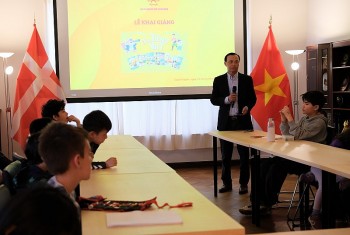 | Vietnamese Class for Overseas Children in Denmark Inagurated On May 4, 2024, at the headquarters of the Vietnamese Embassy in Denmark, the opening ceremony of a Vietnamese class for Vietnamese children in Copenhagen, ... |
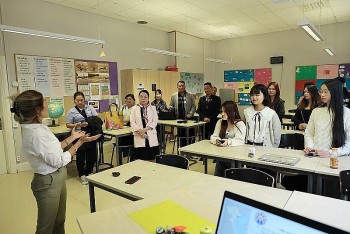 | Vietnamese Class for Viet Expats in Sweden In Östergötland, Sweden, there is a small Vietnamese language class for Vietnamese students. Sally, a Vietnamese resident in Sweden, has bravely faced challenges to teach ... |
Recommended
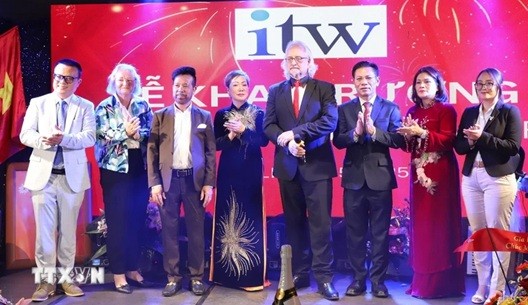 Overseas Vietnamese
Overseas Vietnamese
Language and Vocational School for Vietnamese launched in Germany
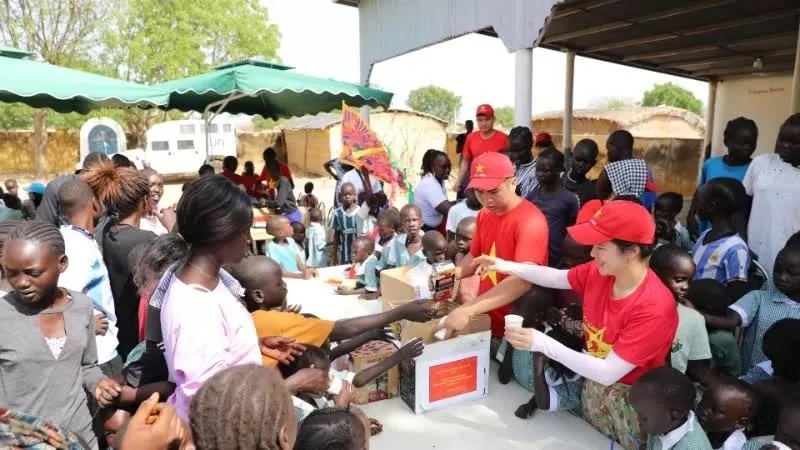 Overseas Vietnamese
Overseas Vietnamese
A Heart-warming International Children's Day in Abyei
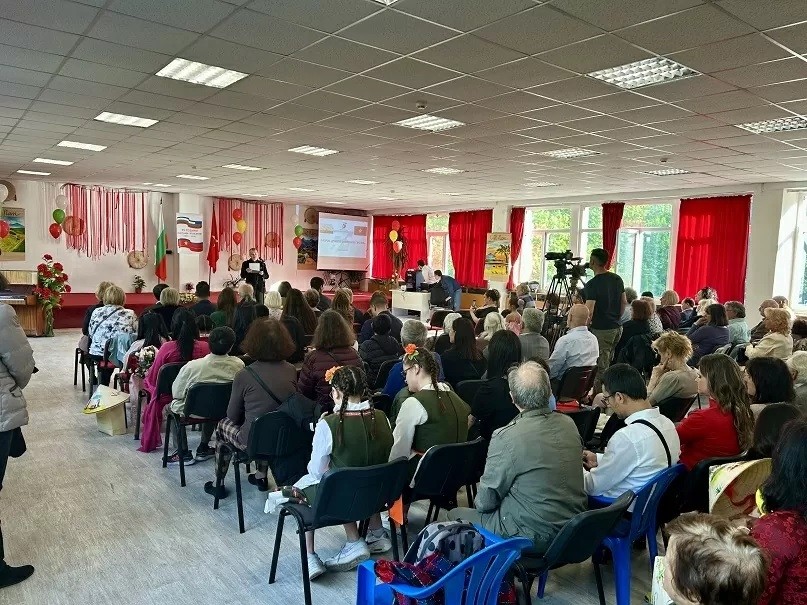 Overseas Vietnamese
Overseas Vietnamese
Art Program Deepens Vietnam-Bulgaria Cultural Exchange and Friendship
 Overseas Vietnamese
Overseas Vietnamese
First Vietnamese Film Week Opens in Greece
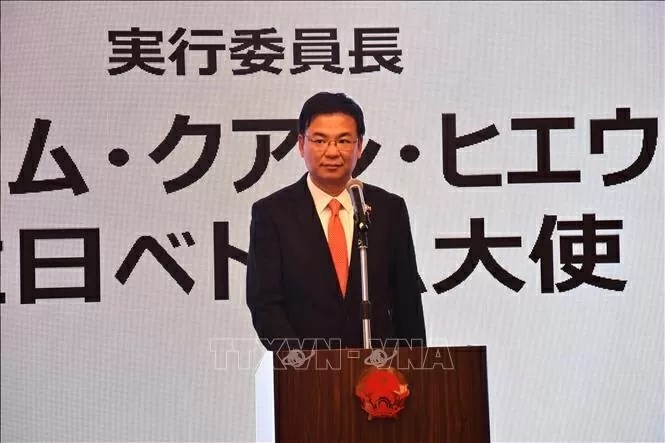 Overseas Vietnamese
Overseas Vietnamese
Vietnam Festival in Tokyo To Be Held for 18th Time
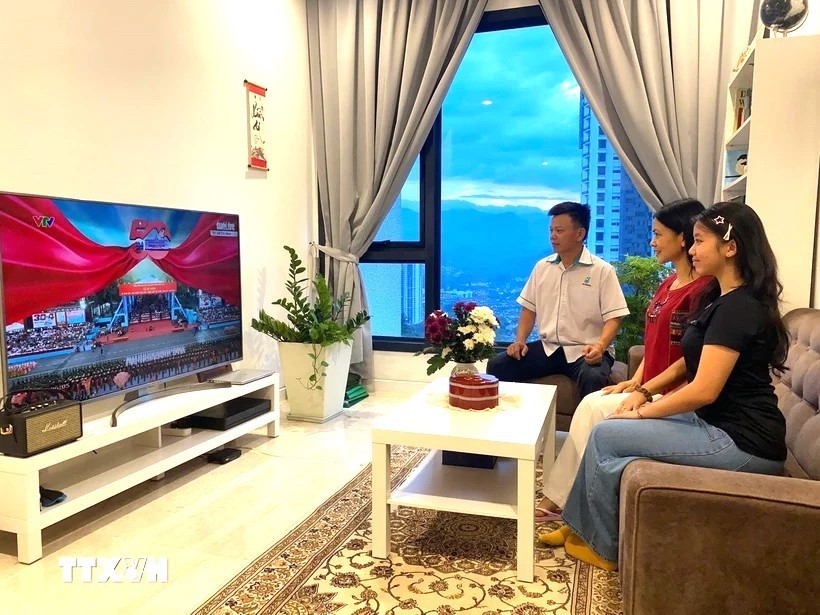 Overseas Vietnamese
Overseas Vietnamese
Global Vietnamese Community Celebrates 50 Years of Reunification with Pride
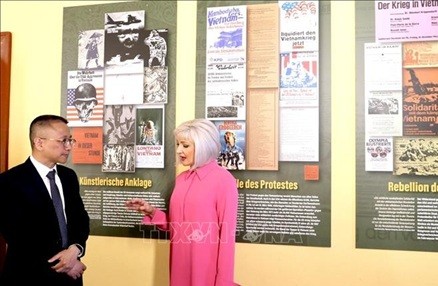 Overseas Vietnamese
Overseas Vietnamese
Exhibition “VIETNAM 75” Honors Aspiration for Independence and International Solidarity
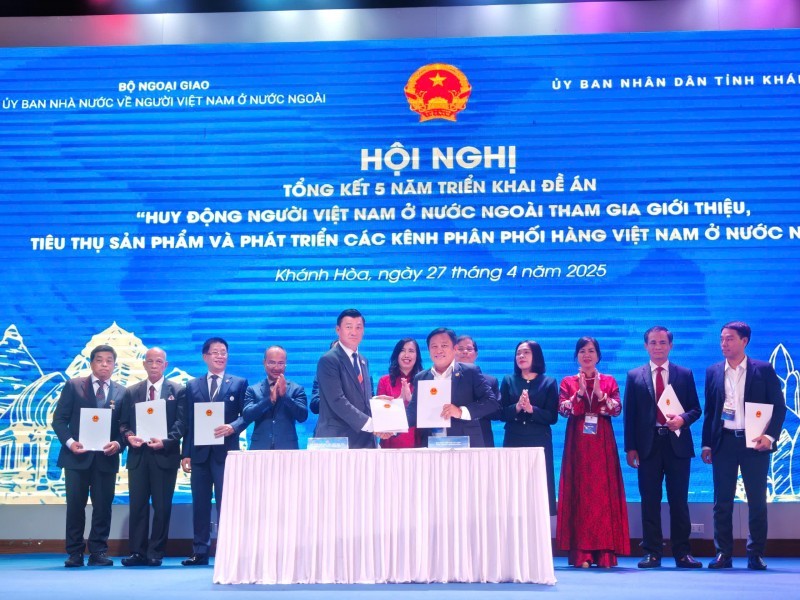 Overseas Vietnamese
Overseas Vietnamese


